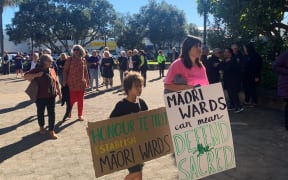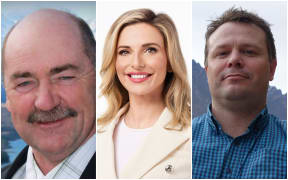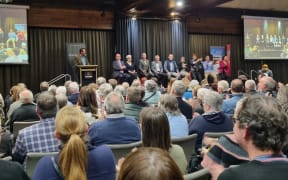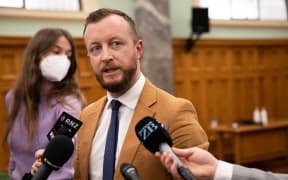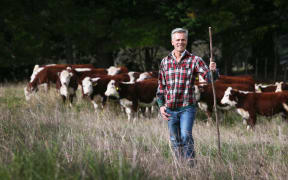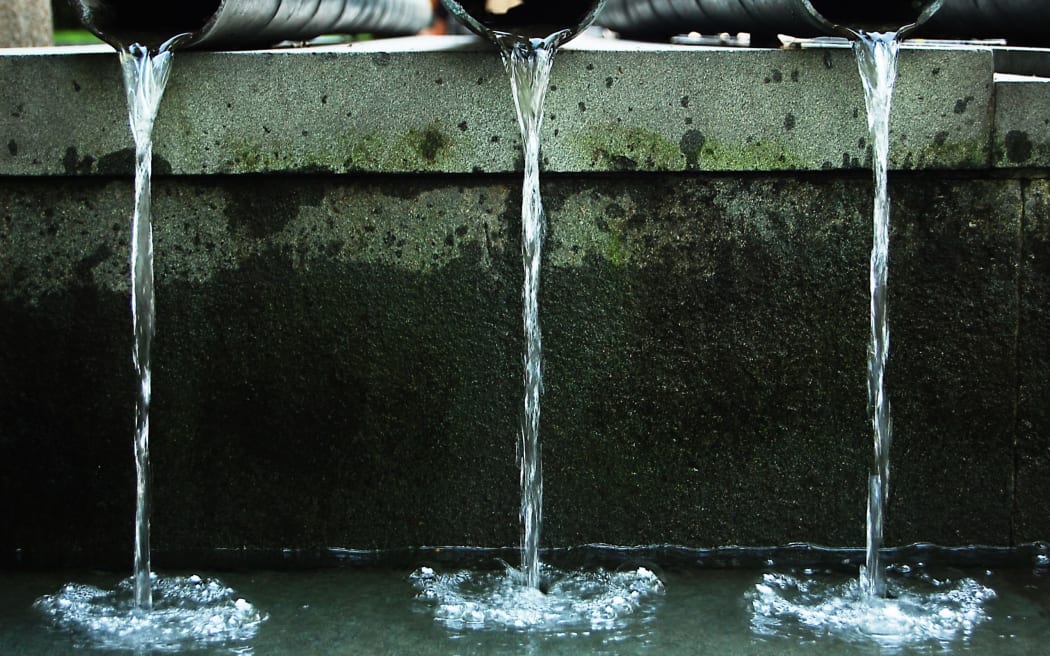
A majority of mayoral candidates are opposed to Three Waters reforms. Photo: RNZ
A survey of all 291 mayoral candidates reveals there's little love for the government's Three Waters reforms.
The '2022 Local Democracy Reporting mayoral candidate survey' also shows that when it comes to this year's rates rises, those standing in the cities are more unhappy about them than those in the provinces.
Of all the questions asked in the survey, including on climate change, Māori wards and rates, the one on Three Waters elicited the most clear cut response.
Asked if the reforms were the best way to achieve the investment that was sorely needed in water infrastructure in many regions, 75.3 percent said they were not.
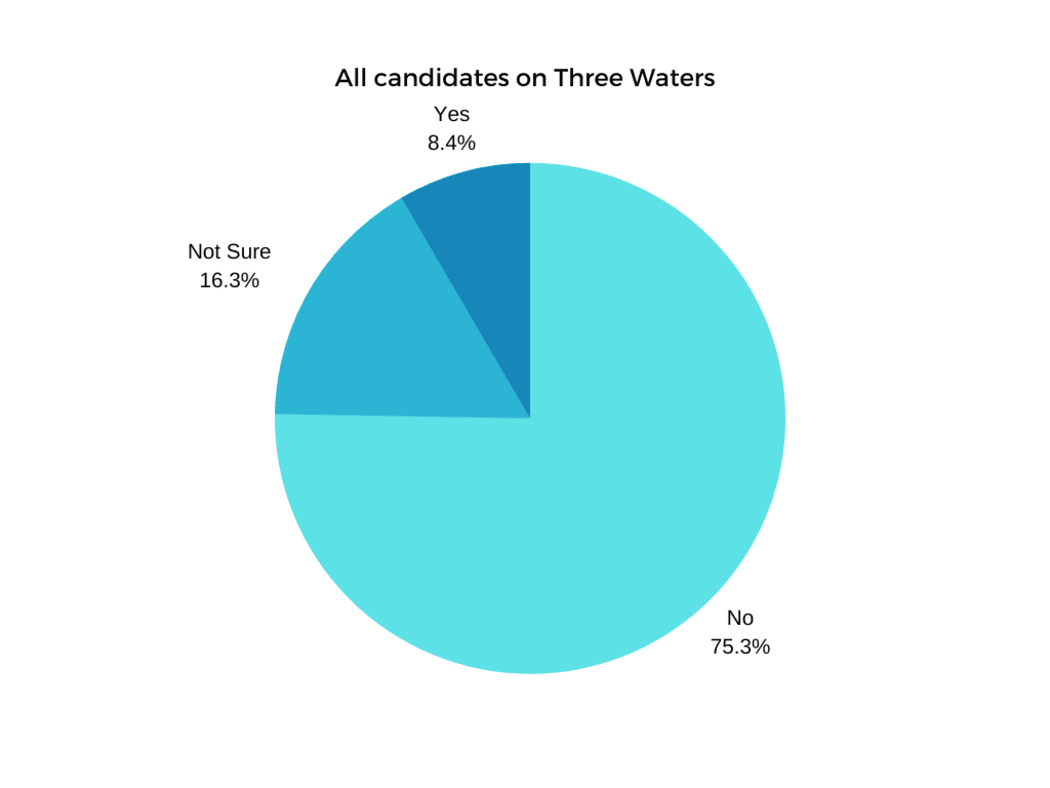
Photo: Supplied / LDR
Comments attached to answers were often in caps or accompanied by exclamation marks, including this one from Whakatāne mayoral hopeful Lesley Immink.
"No - absolutely not! I do not have confidence in either the model, delivery of improved water infrastructure services or better value for money," she said.
The opposition was even more stark comparing North Island to South Island candidates, with just two out of the 58 Mainland candidates (3.4 percent) backing the reforms.
Current Southland mayor, Gary Tong, was one of those two lonely voices.
He said that while they were required, "so much misinformation has occurred from a lack of early information from cabinet".
Those wanting the top job at councils in the main centres were slightly less vociferous in their opposition, with 63.5 percent saying the reforms would not achieve their aims and the rest almost evenly divided between 'yes' and 'not sure'.
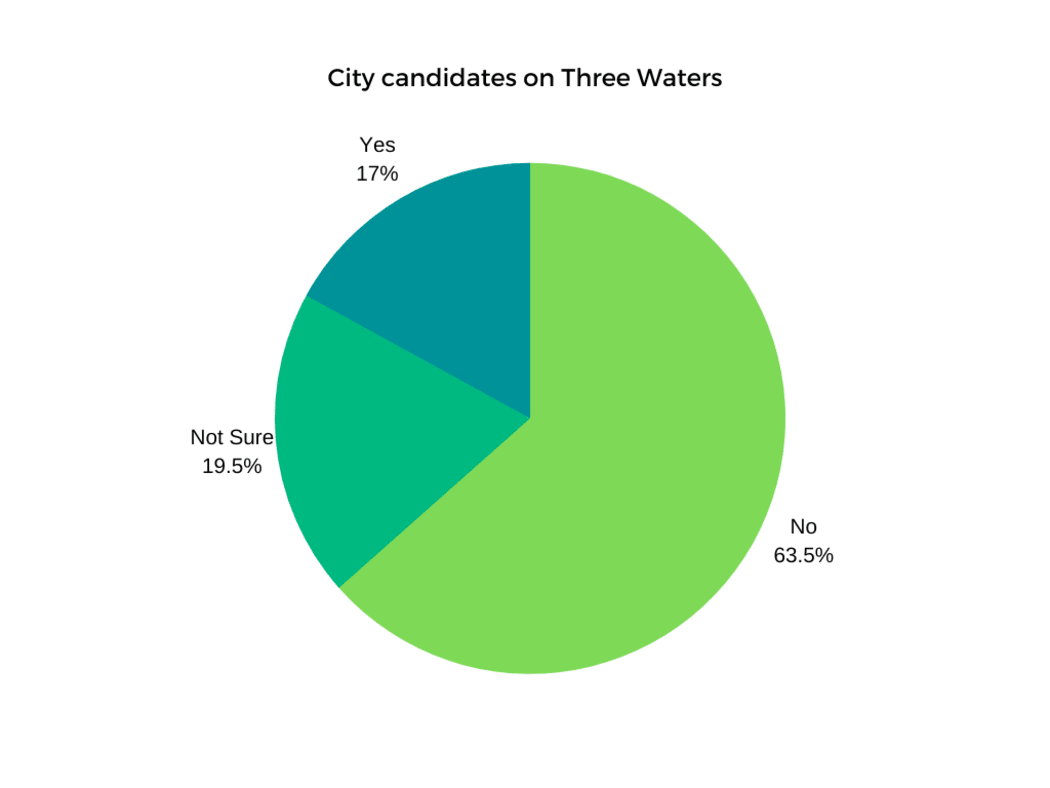
City candidates on Three Waters. Photo: Supplied / LDR
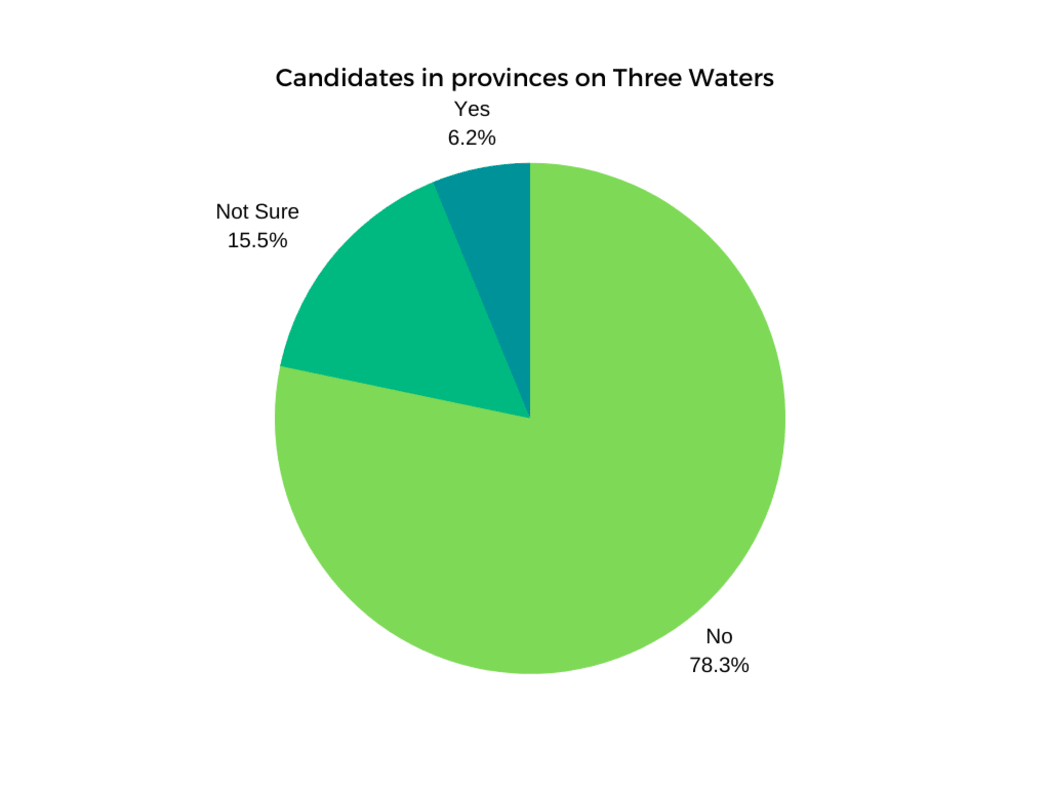
Candidates in provinces on Three Waters. Photo: Supplied / LDR
"Wellington is a great example as to why reform of our Three Waters is needed," said leading mayoral contender and local Labour MP, Paul Eagle.
The city has a mounting list of required water infrastructure fixes, following decades of under investment.
Eagle is one of only two candidates, out of nine, to back the reforms. He said he was "focused on working with central Government to ensure Wellington can get on with fixing our pipes".
Those asking for your vote this year were much more evenly divided when it came to the subject of this year's rates rises.
When asked if they thought they were fair, 43.5 percent said they were and 44 percent said they were not.
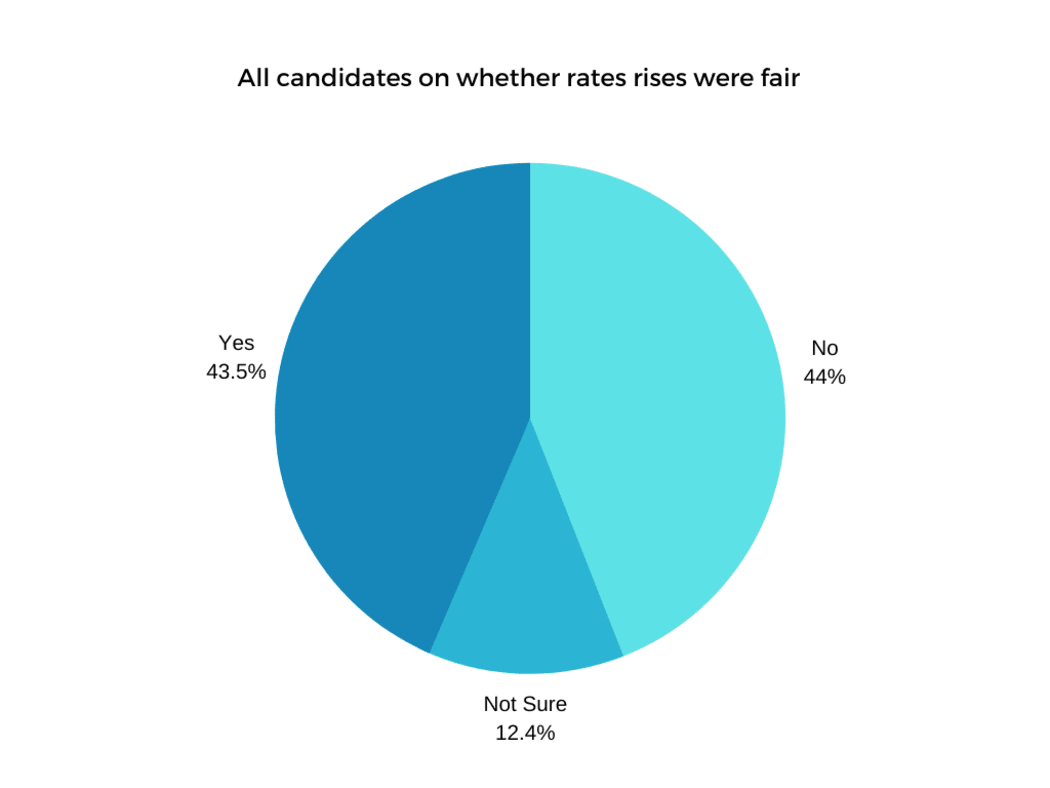
Mayoral candidates' views on rates rises. Photo: Supplied / LDR
Candidates in urban areas were slightly more critical (51.3 not fair) than those in the provinces (42.2 not fair).
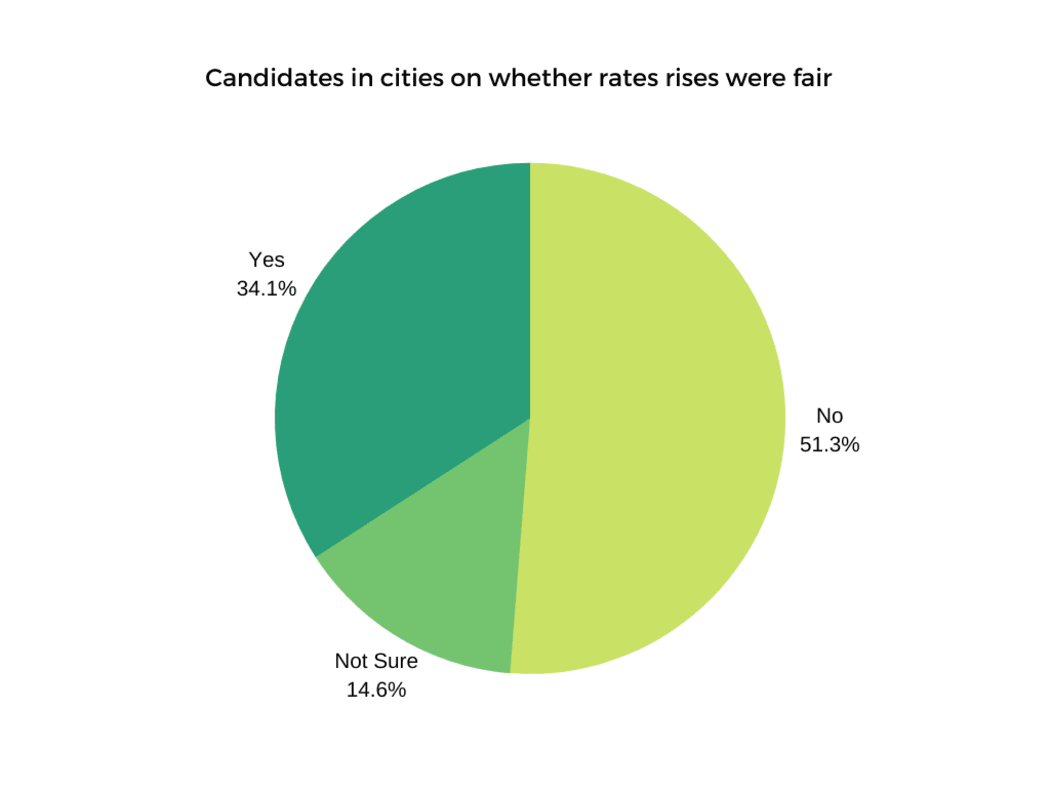
City candidates on rates rises. Photo: Supplied / LDR
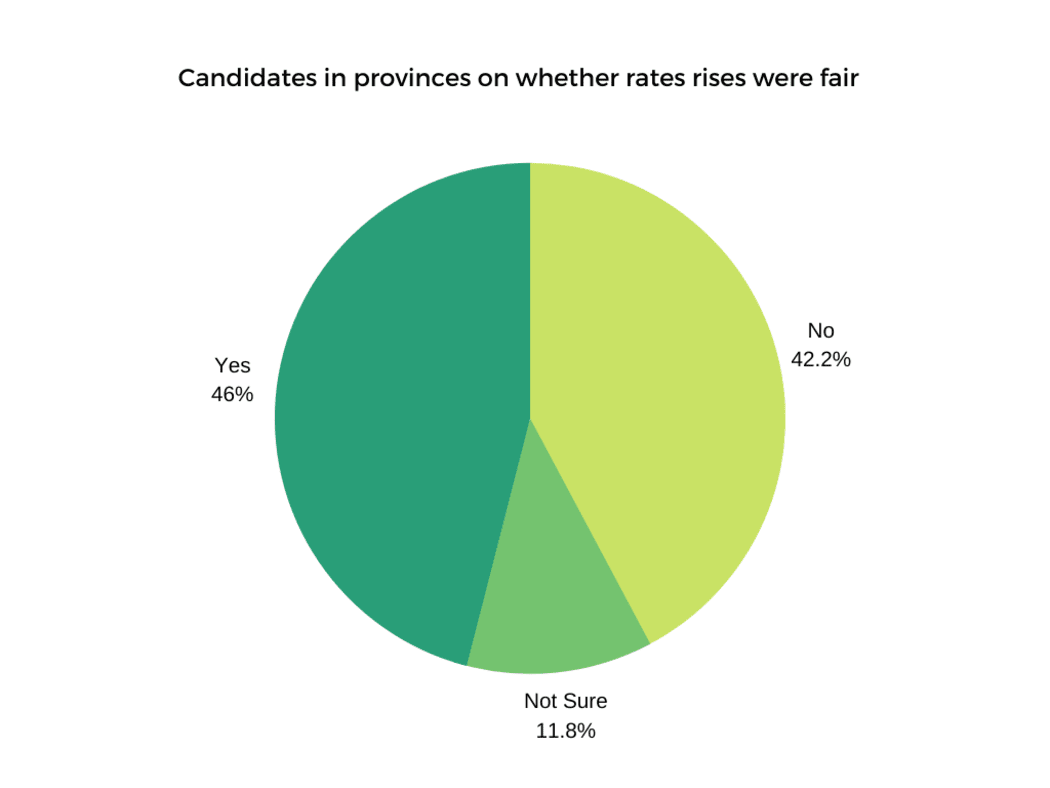
Candidates in provinces on rates rises. Photo: Supplied / LDR
Comparing councils is of course a fraught exercise and how fair a council's rates increase is will depend entirely on the scale of those in previous years and how high they are already compared to other similar sized councils.
As with most incumbents, Ashburton's Neil Brown defended his district's 9.4 percent increase, one of the highest in the country, saying "lower rates mean decreased levels of service".
Another incumbent, Central Hawke's Bay's Alex Walker, explained her council's 6.8 percent hike saying "we have the collision of issues - new property valuations, historic underinvestment in core infrastructure, unprecedented population growth, and increasing regulation."
Interestingly Bruce Graham, who's taking on long standing mayor Bryan Cadogan in Clutha, said this year's 4 percent increase "should actually be higher because they are being kept artificially low".
The survey was sent out to all 291 mayoral candidates and garnered 202 responses, representing a 69 percent response rate.

Local Democracy Reporting is Public Interest Journalism funded through NZ On Air

